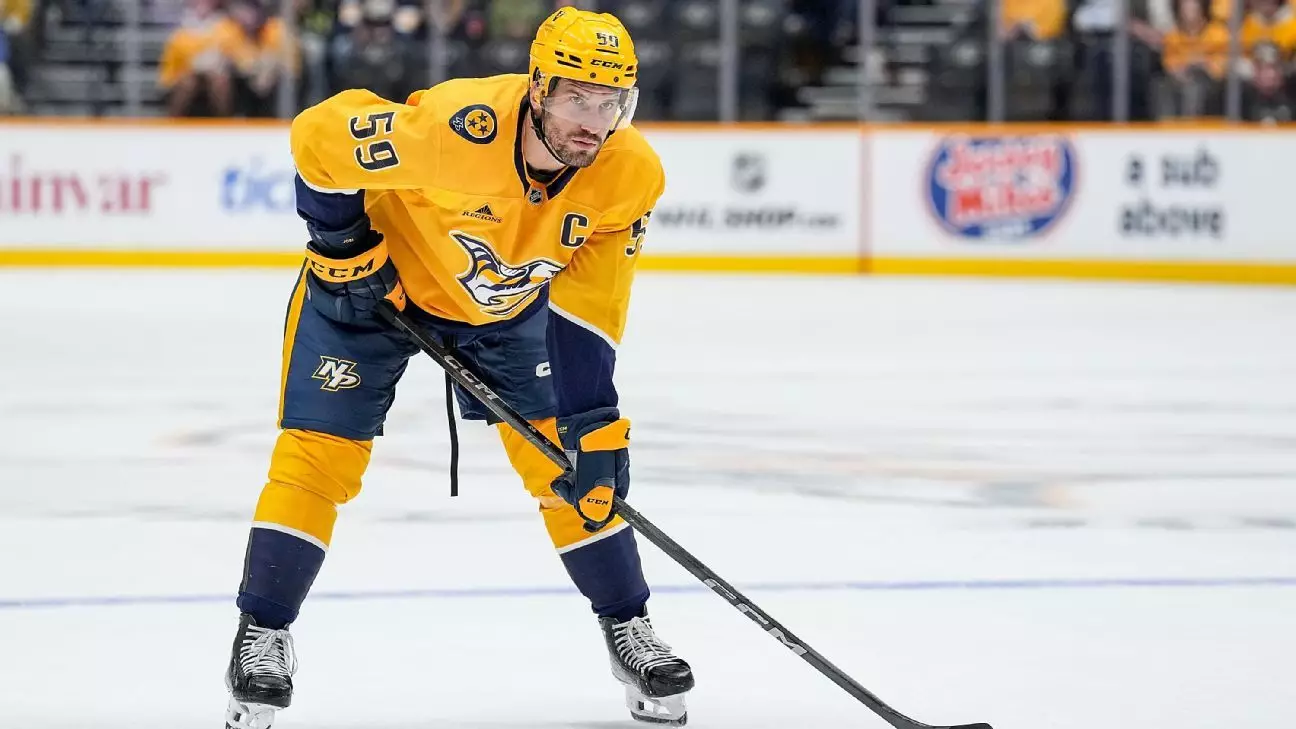In the world of professional sports, the unexpected can often derail even the most promising of careers. Roman Josi, captain of the Nashville Predators, is currently navigating a turbulent chapter as he battles postural tachycardia syndrome (POTS). Initially diagnosed late in the previous season, Josi has been diligently following a treatment plan that has already begun to show encouraging results. This determination is not just a testament to his strength as an athlete but also highlights the mental toughness required to contend with personal health challenges while maintaining the high standards of professional hockey.
Josi’s commitment to recovery has been inspiring not just for his teammates, but for fans and aspiring athletes alike. General Manager Barry Trotz’s remarks about Josi’s progress reflect a broader expectation — the expectation that through perseverance and the right management, Josi could indeed grace the ice once again during the 2025-26 season. The focus now shifts to his journey through rehabilitation: will he be able to reclaim his elite status? History tells us that many athletes have faced similar battles with health, only to return even stronger.
Career Implications and Future Prospects
Josi, a three-time All-Star and the 2020 Norris Trophy winner, has established a legacy of skill and leadership. However, this setback raises significant questions regarding his future in the league. There’s an undeniable tension between the physicality of hockey and the delicate nature of human health, especially when the condition requires ongoing management rather than a definitive cure.
In a league that demands peak performance, and in an era where the speed of gameplay seems to accelerate yearly, the Predators would feel the absence of their captain acutely. His previous season was already marred by a concussion that limited him to 53 games. As he gears up for the next chapter, the stakes are incredibly high; Josi’s ability to return to form could dictate both his future as a player and the success of a franchise increasingly eager to compete.
Strategic Moves and the Team Dynamics
Amidst the turmoil surrounding Josi’s health, the Predators are also making waves off the ice. The recent acquisition of forward Erik Haula signifies Nashville’s willingness to adapt and reinforce its roster. Trading for Haula, who returns for a second stint with the team, brings valuable experience to the ice. In a sport driven by chemistry and collaboration, integrating new players while navigating injuries can create both opportunities and challenges.
Haula’s experience, accrued over multiple seasons with various teams, including the Minnesota Wild and Boston Bruins, adds depth to the Predators’ lineup. As he adjusts to a familiar environment, Haula could prove to be a crucial asset, allowing younger players to mature while taking on a significant role within the team structure. This balance between nurturing upcoming talent and relying on seasoned veterans is vital for any team intent on competing in the high-stakes arena of the NHL.
Roman Josi’s journey through recovery and resilience serves as an inspiring reminder of the challenges athletes face, both on and off the ice. With each training session, he inches closer to reclaiming his position as one of hockey’s elite, while the Predators strategically position themselves for success amidst uncertainty.


Leave a Reply